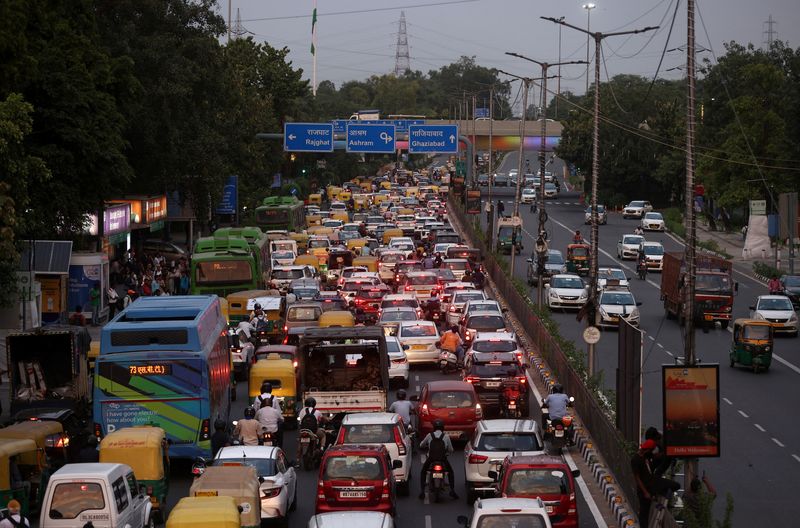Who is Kevin Hassett? Wolfe looks at the Trump ally tipped to become Fed Chair.
By Munsif Vengattil and Aditi Shah
NEW DELHI (Reuters) - An Indian government panel has recommended that automakers who step up connectivity features in cars to communicate with other vehicles and external systems should win better ratings on crash tests, a draft report showed, in a bid to boost road safety.
In a country with high accident rates, the advice could force automakers to equip the connected cars, as they are known, with technology using the airwaves to send warnings between drivers, and communicate with road systems like traffic lights.
"Most traffic issues occur because of non-line-of-sight scenarios," the government panel said in its 58-page draft, which is being reported for the first time by Reuters.
"Most sensors do not work well in these scenarios and V2X fills the gap," it added, referring to the connected car technology commonly known as vehicle-to-everything (V2X).
The panel wants V2X to be considered for inclusion in India's Bharat New Car Assessment Programme (NCAP) for car safety ratings, in line with developments abroad, but did not set any deadline for adoption of its recommendations.
In Europe, the Euro NCAP rules recognise vehicle connectivity as a key milestone in crash avoidance and car ratings, the report added, while China and the United States are among the nations evaluating similar rules to improve safety.
Carmakers in India have begun work on advanced connectivity features in vehicles but have not firmed up a timeline, said an industry source aware of companies' discussions, who spoke on condition of anonymity.
The Indian report will now be reviewed by the communication ministry, whose representative chairs the panel, and the road ministry, to decide on implementation, said a source familiar with the matter who spoke on condition of anonymity.
The ministries did not respond to a request for comment.
Of the firms consulted in preparing the draft, from telecoms giant Reliance Jio to companies such as Samsung (KS:005930), Qualcomm (NASDAQ:QCOM) and Mahindra & Mahindra. Qualcomm and Mahindra declined to comment, but the rest did not respond.
India's many crowded roads present drivers with obstacles ranging from cattle to darting pedestrians. Among the world's deadliest, the road network saw 153,972 deaths in more than 412,000 accidents in 2021, the latest government data shows.
Many drivers have scant respect for lane discipline and speed limits, while enforcement of the law is weak.
"With limitation for growth infrastructure there is a strong need to depend on technology to address challenges," the panel said in its report.
India's current voluntary Bharat NCAP system does not mandate features to be included by carmakers. Instead, it assigns star ratings based on the impact of collisions.
Some cars on Indian roads feature forward collision warning and emergency braking, but mostly use sensors triggered by close proximity. V2X is more advanced, as it will rely on a dedicated network to issue warnings even miles ahead.
The United States estimates introducing V2X connected vehicle technology could prevent at least 600,000 crashes a year.
Some uses of V2X mentioned in the draft are weather warnings during times of fog or heavy rain, and navigation of turnings at blind intersections in the absence of a clear line of sight.
The report also urges priority rules for allocation of spectrum used by applications for connected cars and establishment of a "multi-stakeholder" task force to make and enforce policy governing the spread of V2X.
